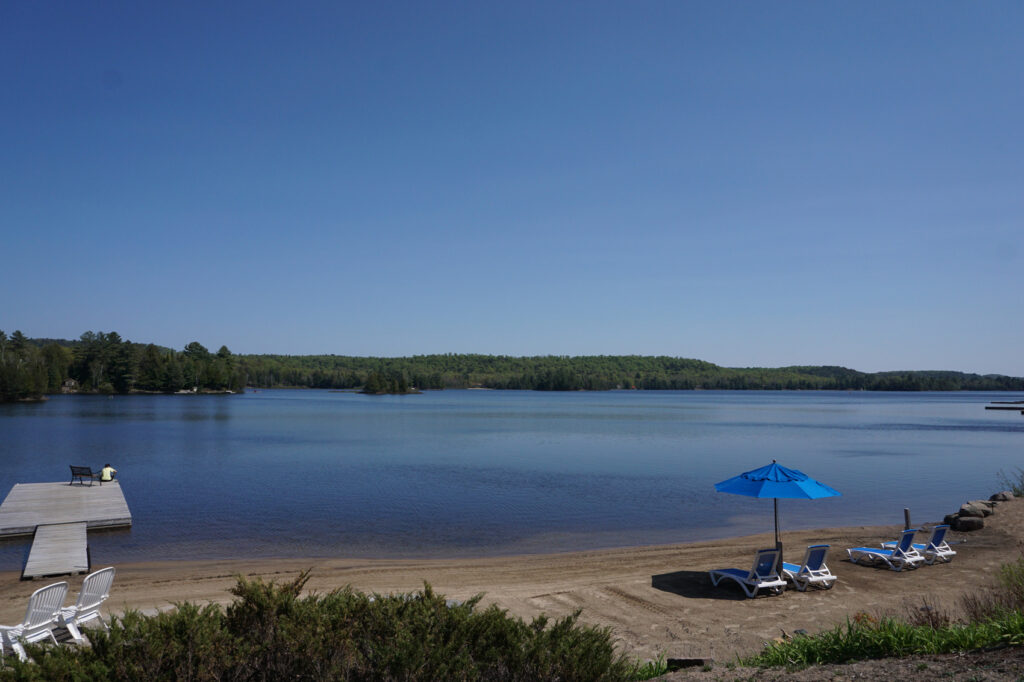The Science Behind Natural Healing And The Mind-Body Connection
The concept of natural healing has gained significant attention as people seek alternative approaches to healthcare. The growing interest in the field has fueled the desire for people to opt for more patient-centered and holistic solutions. As scientific evidence solidifies the connection between the mind and the body, it has stated that our emotions and, all together, our mental health has a profound influence on our physical health.
Natural healing practices have deep historical roots in various cultures worldwide, including Traditional Chinese Medicine, Ayurveda, and Indigenous healing practices. These traditional systems serve as the foundation for many contemporary natural healing modalities. Through this article, you will learn the science behind natural self-healing and the mind’s influence on the body.
Understanding Natural Healing:
Natural healing, or in other words, alternative medicine, is the use of various therapies and practices to promote the innate ability of the body to go into recovery. Over the years, allopathic medicine has focused on finding a cause and treating the disease, while naturopathic healing works on finding all the factors that may be overlooked in allopathic medicines contributing to disease development. It states that the human immune system is affected by the mind-body connection.
Mind-Body Connection:
There is an intricate relationship between the mind and the body that is bidirectional. Understanding the interconnection between the two systems is essential to finding strategies to enhance natural healing. Now the question arises of how thoughts and emotions influence our health and well-being. According to psychoneuroimmunology (PNI), our body releases protein molecules called neuropeptides under stress. This stress can arise from feelings, thoughts, stressful situations, sleep disturbance, etc. This impacts immune function and brain activity. Likewise, an affected body takes a toll on our mind spurring negative thoughts and emotions.
The science behind this is that the neuropeptides are pro-inflammatory, i.e., promoting inflammation, which increases the risk of mental illness. In addition to that, sleep disturbance also triggers the release of these pro-inflammatory mediators. (1). Thus it is essential to adopt holistic treatment strategies to promote healing.
The Gut-Brain Axis:
The gut-brain axis is a remarkable communication network that connects the brain and the gut, playing a vital role in the healing process. There is bidirectional communication, i.e., the effect of one system to influence the other. The gut bacteria are responsible for:
- Influencing the mood by releasing mood-affecting neurotransmitters like dopamine, serotonin, and GABA.
- Brain inflammation and brain fog.
Cognitive functioning has an association with gut disorders through gut microbiomes. This leads to conditions like IBS, Crohn’s disease, SIBO, and gluten sensitivity, further highlighting the gut-brain link (2).
A healthy gut microbiome promotes a balanced immune response, reduces inflammation, and synthesis neurotransmitters that impact mood and cognition. Adapting to holistic healing approaches allows results that support gut health and overall well-being simultaneously.
The Science Behind Natural Healing:
The healthcare system has fallen victim to managing the diseased body symptomatically. This dilutes the intended goal of patient care. Thus the world has started turning to natural healing strategies. The principle behind natural healing is to encompass therapies that help remove the causative stress while allowing the body to promote its innate ability to start recovering.
The human mind can remarkably rewire to improve chronic pain and heal brain damage. Another mechanism targeting the mind-body connection is promoting the brain to rewire itself by developing new neural pathways. This is supported by practices such as mindfulness and meditation that helps in building new passageways or, in other words, pathways or connections.
Natural Healing Practices:
Nature heals through the response of the life force. Methods Natural healing practices include herbal remedies and energy-based techniques. We know that the human body has the inherent ability to establish, maintain and restore health. Thus, natural healing strategies aim to promote the body’s healing properties. The principles of natural healing include:
- Identifying and treating the cause.
- Adopting a holistic approach to harmoniously target the physical, spiritual, genetic, mental, environmental, and social factors.
- Preventive measures include lifestyle changes and education.
Benefits:
Pain reduction for patients with fibromyalgia, chronic fatigue syndrome, reduced anxiety, improved stress response, increased mindfulness, better sleep, increased energy, and reduced levels of depression. Natural healing helps the patient reduce their pain, their response to pain, and their mental ability to cope. Moreover, it improves the patient’s sleep hygiene.
Methods to Natural Heal Your Body:
Natural healing aims to facilitate the healing properties of the body. The physician must work towards identifying and removing the obstacles to health and recovery to provide healthy internal and external environments. Following are the mechanisms of alternative medicine by which natural healing is promoted:
- Neuroplasticity:
Neuroplasticity or limbic system training may also be able to help with trauma healing, emotional regulation, and anxiety by retraining nervous system responses that have become “stuck” over time. The goal is to rewire those neural pathways and reprogram the responses. Combining meditation, breathwork, visualization, cognitive behavioral exercises, relaxation therapy, and lifestyle changes is used to harness emotional restructuring.
- Meditation:
Meditation is an ancient mindfulness technique that promotes a deep mind-body connection, enabling the body’s innate healing ability. Regular meditation reduces stress, anxiety, and inflammation, promoting neuroplasticity and cognitive resilience. It also helps individuals become more attuned to their bodies, addressing physical and emotional imbalances. Meditation empowers individuals to actively participate in their well-being actively, promoting optimal health and vitality.
- Energy Healing and acupuncture:
Energy healing encompasses diverse modalities, such as Reiki and Qi Gong. Energy healing practices address the imbalance of energy by channeling and balancing the body’s vital energy.
Acupuncture, conversely, is the insertion of thin needles into specific points to regulate energy flow along meridians to stimulate the body’s natural healing process to restore harmony within.
Lifestyle Changes
- Regular exercise:
Regular exercise improves cognitive function and overall well-being, with 150-75 minutes of moderate or vigorous weekly exercise. Research shows that training modifies brain synapses in the hippocampus, increasing cortical neuron density and size. Exercise also elevates Brain-Derived Neurotrophic Factor (BDNF), a crucial molecule for neuroplastic changes. It reduces systemic inflammation and improves sleep quality, influencing cognitive function and overall well-being. Exercise’s potential to improve mild cognitive impairment in older individuals offers promising implications for brain health and mental longevity (3).
- Quality Sleep:
Individuals require 7-8 hours of quality sleep daily for optimal cognitive function and neuroplasticity. Sleep deprivation can cause leaky gut and systemic inflammation. Monitoring sleep patterns and using tools like Oura Ring and WatchPat One can improve sleep quality and overall well-being (4).
- Nutrition and Diet:
Nutrition plays a crucial role in enhancing brain function. This is by staying clear of inflammatory foods like sugar, alcohol, deep-fried and highly processed food and embracing anti-inflammatory foods such as polyphenol-rich options like colorful vegetables, fruits, tea, and certain herbs, which support neuroplasticity. Subtraction of carbs and adding supplements like omega three have been known to improve cognitive function and decrease the risk of dementia. Moreover, probiotic supplements can complement a healthy lifestyle that includes proper nutrition, better sleep, and regular exercise by providing beneficial bacteria to the gut (5).
- Sauna Therapy:
A sauna is another way that can give you a brain boost. The optimal time and temperature are 90 minutes at 101.3 to 103.3 degrees Fahrenheit. It relaxes the brain and improves performance in auditory and visual tasks. Studies show that people who took sauna 9 to 12 times a month were less likely to develop dementia than those who took it 0 to 3 times a month (6).
- Empowerment and natural healing:
Empowerment and natural healing promote well-being and self-discovery. Natural healing practices emphasize the body’s innate healing abilities, empowering individuals to participate in their health journey actively. By embracing holistic approaches and incorporating natural healing modalities, individuals gain control over their physical and emotional well-being, making informed choices, adopting healthier lifestyles, and exploring alternative therapies.
Conclusion:
The science behind natural healing and the mind-body connection underscores the potential of these practices to complement conventional medical treatments and promote holistic well-being. As research reveals the intricate interplay between our mental and physical states, integrating natural healing into modern healthcare becomes a promising path toward improved patient outcomes and a more comprehensive approach to health and healing.
References:
1. Calcia MA, Bonsall DR, Bloomfield PS, Selvaraj S, Barichello T, Howes OD. Stress and neuroinflammation: a systematic review of the effects of stress on microglia and the implications for mental illness. Psychopharmacology (Berl). 2016;233:1637–50.
2. Dopkins N, Nagarkatti PS, Nagarkatti M. The role of gut microbiome and associated metabolome in regulating neuroinflammation in multiple sclerosis and its implications in attenuating chronic inflammation in other inflammatory and autoimmune disorders. Immunology. 2018 Jun;154(2):178–85.
3. The Neuroprotective Effects of Exercise: Maintaining a Healthy Brain Throughout Aging – PMC [Internet]. [cited 2023 Aug 1]. Available from: https://www.ncbi.nlm.nih.gov/pmc/articles/PMC6296262/
4. Frey DJ, Fleshner M, Wright KP. The effects of 40 hours of total sleep deprivation on inflammatory markers in healthy young adults. Brain Behav Immun. 2007 Nov;21(8):1050–7.
5. Nutrition and mental health: A review of current knowledge about the impact of diet on mental health – PMC [Internet]. [cited 2023 Aug 1]. Available from: https://www.ncbi.nlm.nih.gov/pmc/articles/PMC9441951/
6. Cernych M, Satas A, Brazaitis M. Post-sauna recovery enhances brain neural network relaxation and improves cognitive economy in oddball tasks. Int J Hyperth Off J Eur Soc Hyperthermic Oncol North Am Hyperth Group. 2018;35(1):375–82.




